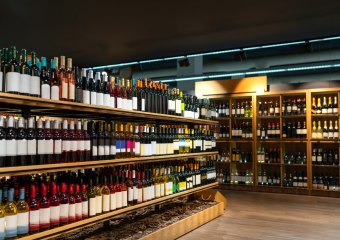The Future of Wine: Insights from Innovators, Technologists, and Winemakers
Wine Industry Innovations Poised to Transform the Industry
Innovation is at the heart of the wine industry’s evolution. As global trends lean towards sustainability and efficiency, technologists and winemakers are joining forces like never before, heralding a future packed with intriguing possibilities. These changes not only reflect technological advancements but also a shifting consumer landscape prioritizing eco-conscious choices and personalized experiences.
Technological Advances Revolutionizing Winemaking
Technology has always played a significant role in agriculture, and the wine industry is no exception. From precision viticulture to advanced data analytics, technological innovations are making it possible to achieve greater efficiency and higher quality with less environmental impact.
Drones and satellite imaging are now commonly used for real-time monitoring of vineyard conditions, allowing for precise interventions that ensure optimal grape quality and yield. Additionally, IoT (Internet of Things) sensors are capable of monitoring soil moisture and nutrient levels, drastically reducing water usage and ensuring plants receive exactly what they need.
Machine learning and AI are also making their mark. These technologies can predict optimal harvest times and even model future climate conditions, enabling winemakers to adapt their strategies in advance. AI-driven platforms also provide winemakers with detailed insights into flavor development, helping them to enhance the sensory profiles of their wines.
Sustainable Practices Shaping the Future of Wine
Sustainability is becoming a cornerstone of the wine industry, as both consumers and producers increasingly focus on environmental impact. Organic winemaking practices, which eschew the use of synthetic pesticides and fertilizers, are gaining popularity. Moreover, biodynamic farming, which treats vineyards as integrated, holistic organisms and emphasizes the balance between soil, plants, and animals, is being adopted by an increasing number of vineyards worldwide.
Water management is another critical aspect where innovation is taking center stage. Winemakers are implementing advanced irrigation systems that use water more efficiently, critical in regions where climate change threatens traditional growing methods. These systems help to not only conserve water but also ensure that vines grow under optimal conditions for producing high-quality grapes.
Personalization in Wine Production and Consumption
One of the most exciting developments in the wine industry is the rise of personalized wine experiences. Advances in data collection and analytics allow winemakers to understand consumer preferences more deeply, and some are even offering customized wine based on individual tastes. This trend is supported by online platforms that analyze user preferences to recommend wines that might suit their palate, making wine selection a deeply personal experience.
Moreover, the integration of virtual reality (VR) and augmented reality (AR) technologies is enhancing the way consumers interact with wine. From virtual vineyard tours to AR apps that provide food pairing suggestions and detailed wine information just by scanning a label, these technologies are bringing the wine experience directly into the 21st century.
Collaborations Between Winemakers and Technologists
The future of wine sees an increasing collaboration between winemakers and technologists. Through shared knowledge and goals, they are not only pushing the boundaries of traditional winemaking but are also setting new industry standards. For instance, lab-grown yeast and bacteria are being developed to ferment grapes in new ways, potentially introducing less common flavors into the mainstream.
Furthermore, winemakers and tech experts are collaborating to improve packaging and distribution. Innovative solutions, such as lighter bottles and improved shipping methods, reduce carbon footprints and storage costs. This not only benefits the environment but also lowers the end cost to consumers, enhancing accessibility.
Conclusion
As we look to the future of wine, it is clear that the intersection of technology, sustainability, and personalization will define the next generation of winemaking. These advancements promise not only to sustain the industry through changing climates and tastes but also to enhance the wine-drinking experience, making it more enjoyable, accessible, and environmentally responsible than ever. The collaboration of innovators, technologists, and winemakers is brewing a future that is ripe with potential and rich with flavor.





